To select leaders worthy of the historical responsibility and the people's trust.
Over 95 years of development, especially 80 years of leadership and governance, our Party has accumulated considerable experience in building and developing a contingent of leading cadres at all levels.
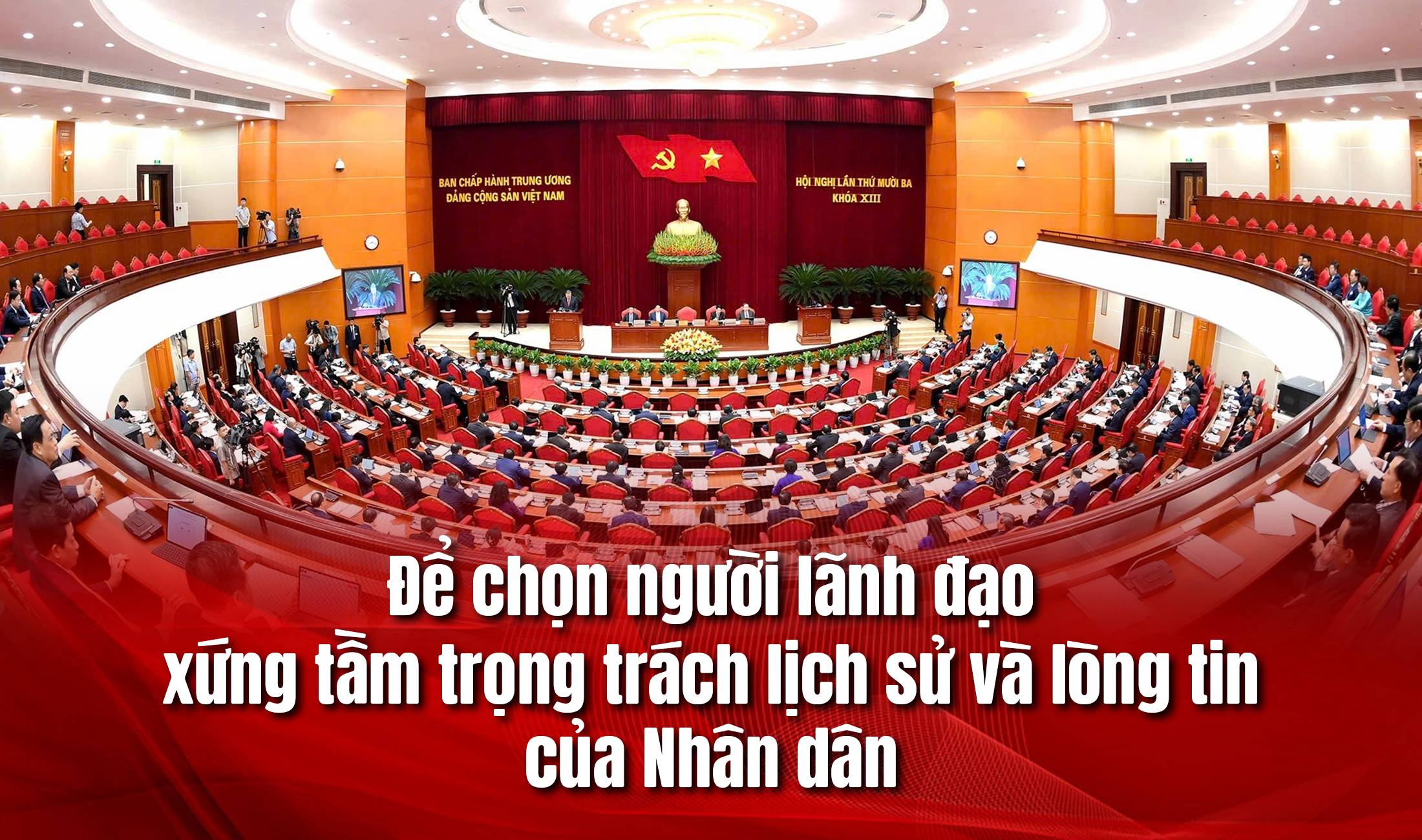
Over 95 years of development, especially 80 years of leadership and governance, our Party has accumulated considerable experience in building and developing a contingent of leading cadres at all levels.
Dr. Nhi Le(Former Deputy Editor-in-Chief of the Communist Magazine)
• October 8, 2025
Without a team of strategically-minded cadres capable of leading and governing, there will be no feasible national development strategy. And, personnel work is one of the key, core, and decisive factors in the success or failure of the revolution, closely linked to the nation's destiny, the Party's strength, and the stability of the regime.
To build a leadership model imbued with ethical, intellectual, democratic, and innovative values that are on par with the new era and compatible with the times, a strategic vision is needed, along with fresh thinking, fundamental reforms, and a suitable approach to current personnel management, fulfilling the new historical responsibilities, especially as our Party prepares for the 14th National Congress.

If leadership, in its etymological sense, means mastering and guiding, then a leader is someone capable of directing, influencing, inspiring, and motivating a nation or people to implement strategic plans and ensure sustainable development.
If the strategic leadership team is the brain of the nation, then the leader is the symbol embodying the national spirit, the will of the Party, and the aspirations of the people. Building a leadership team of equal caliber is about building national spirit, unleashing national strength, and developing national destiny. At the same time, they are the central hub of the people's trust, morality, and wisdom, requiring the strategic leadership team to be not merely "leaders" but to embody the aspirations and act for the nation's destiny in a worthy manner.
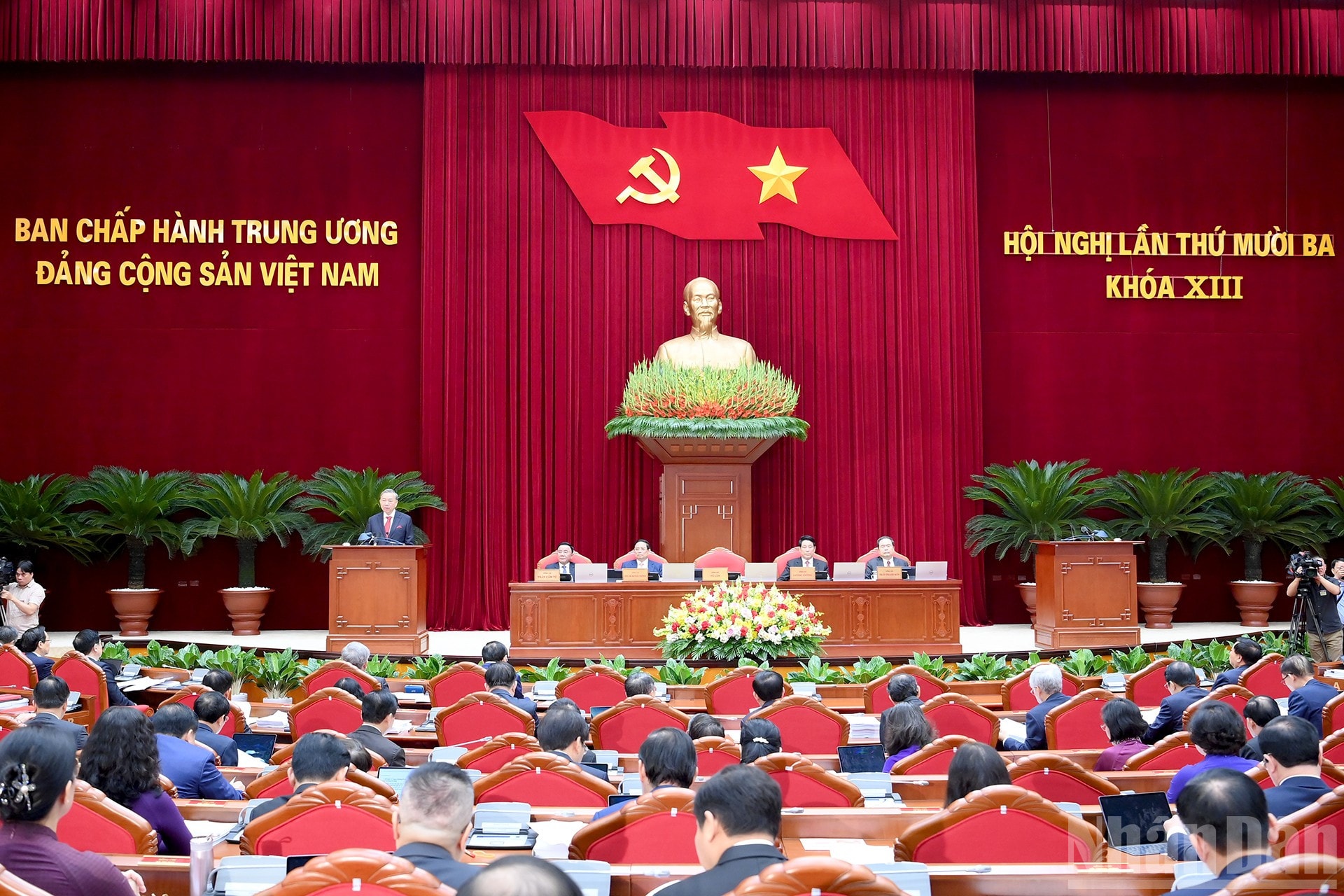
A leader must be worthy of embodying both morality, ideals, and actions for the country, while also being deeply imbued with Ho Chi Minh's ideology, innovating and absorbing the best of humanity, leading the nation's development in the digital and globalized era.
If political action is about leadership, then leaders must not only be at the forefront but also embody the quintessential qualities of character, courage, and belief. They must possess both talent and virtue, with virtue as the foundation and talent as a crucial element. In particular, they must possess strategic thinking, the ability to identify and shape the future, the capacity to lead change, and the ability to withstand all kinds of pressure to work – this is the highest criterion. They know how to listen, how to self-reflect, and how to constantly learn, acting according to what is right, not according to personal opinions, group interests, narrow-mindedness, or factionalism.
Leaders are pioneers in action, not mere pronouncements. They must be committed to the people, act for the people, and be accountable to the people. They demonstrate not only innovative thinking, unwavering political acumen, and the ability to identify and resolve strategic conflicts, but also the capacity to withstand all kinds of pressure from above, from the side, from below, and from outside… to uphold their principles, integrity, and dignity. This means they act with a passionate heart, a clear mind, and unwavering political and human character built upon the foundation of the people. They must set an example of intellectual stature, morality, profound political ideals, honor, courage, and integrity; they must consider what the Party hasn't said and dare to do what the people need.
To put it figuratively, leadership and management should be about ensuring the well-being of the people, not about the short-sighted idea of "the whole family benefiting," and certainly not about the corrupt practice of prioritizing lineage, money, and protégés. In particular, it means preventing family members and relatives from interfering in politics and using it as a cover for personal gain.
The virtue of a leader cannot be borrowed, faked, or concealed; it is forged through actions and sacrifices, in silence. If the virtue of an official does not surpass the political position they hold, their career will inevitably collapse, or even be destroyed. Losing credibility will inevitably lead to the complete downfall of the leader's personal integrity and harm the entire system.
In general, a leader with a new-era spirit is not just someone holding an important position, but must be the intellectual soul, the source of development, and the political acumen of the new era; someone who plans the future of Vietnam in 2045 and is a pioneer, courageous in implementing it. A leader must possess at least 10 qualities:Vision, intelligence, loyalty, integrity, purity, responsibility, trustworthiness, moral fortitude, self-respect, and kindness.
It is this convergence that builds the people's trust in their leaders.
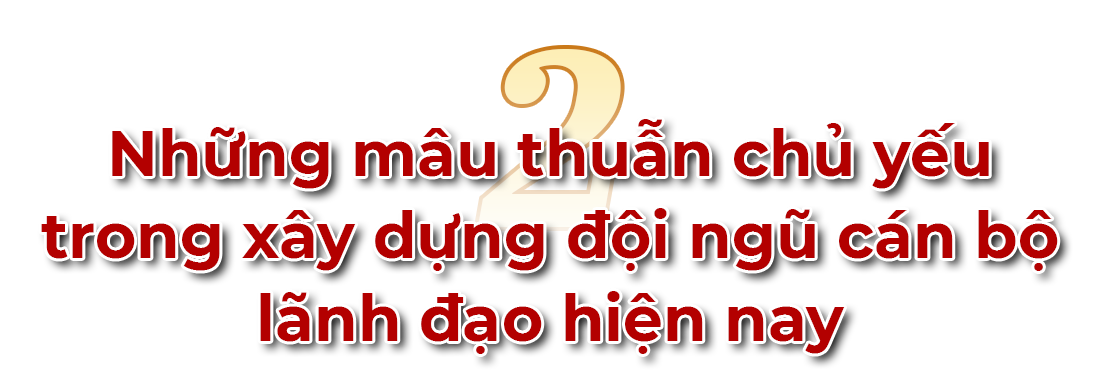
From practical experience, we can identify and recognize 10 main types of contradictions that are challenging and urgently need to be resolved:
First: The conflict between political qualities and practical abilities.Many officials possess strong theoretical knowledge but are weak in practical organization, failing to meet the demands of reform and integration. Some officials are highly skilled professionally but lack political integrity, making them susceptible to corruption and abuse of power.
Secondly: The conflict between "virtue" and "talent".Some places prioritize "virtue" to mask incompetence, while others prioritize "talent" over ethics, leading to the risk of turning officials into either incompetent, hypocritical individuals, or double-edged swords that invisibly lead to corruption and degeneration, even to the point of power addiction. Without ethics, one is unworthy of leadership.
Thirdly: The conflict between process and substance."Following the correct procedure" but not choosing the right people. This is a procedure that is both correct and impractical, turning it into a cover for corruption, protecting group and factional interests, destroying the country's interests, and blaspheming the people's trust.
Fourthly: The conflict between openness and transparency versus parochialism and closed-mindedness.Personnel management still lacks transparency; in many places, it fails to resist the influence of relationships, money, nepotism, and favoritism, leading to inequality in opportunities for promotion among officials, and even undermining the vitality of the workforce…
Fifthly: The conflict between the need for reform and the mindset of focusing only on term limits.Personnel management has not yet overcome the mindset of focusing only on terms of office and regional parochialism, slowing down the process of building a strategic workforce for the nation with a long-term vision.
Sixth: The contradiction between quantity and quality.Experience from many periods warns of the disease of an "bloated" bureaucracy but an "empty" system of competence, with an excess of privileged individuals but a shortage of capable people.
Seventh: The conflict between the demand for dedicated officials and the tendency towards complacency in the bureaucracy.Many people in strategic leadership positions lack historical awareness and strategic political thinking.
Eighth: Conflict between standards and promotion/utilization:The pursuit of positions, power, and transfers, the preference for family members over talented individuals, and the envy and jealousy—like "a young rope cannot tie an old bamboo," or "a cricket taller than the pot"—are distorting the values of strategic cadre standards and the fundamental work of the Party.
The ninth point is: The conflict between the individual and the system.The mechanism of "safeguarding power" stifles the motivation for innovation, leading to a situation of "avoiding conflict" and "clinging to one's position." Many agencies with authority over personnel matters have turned national affairs into "black boxes" in the selection and development of a team of officials capable of handling important tasks.
Ten is: The conflict between stagnant old ways and the demand for breakthrough innovation:Strategic leaders must be able to "break through" outdated visions that are being hampered by a culture of "egalitarianism" and indifference to the suffering of others.

With a multi-dimensional perspective on the overall system, in terms of methodology, five breakthroughs can be summarized:
1. Reconstructing political science and ethics in the thinking of cadres:Power is not a tool for ruling, but a tool for building, leading, and being accountable to the People. Every official must examine themselves through the "three mirrors": (1). Respect the People: Listen to the People, serve the People; (2). Respect the Law: Respect, do not stand above discipline, stand outside the law; (3). Respect the Right Path: Live and act according to the ideals of the Party and the aspirations of the People; respect the law and uphold morality.
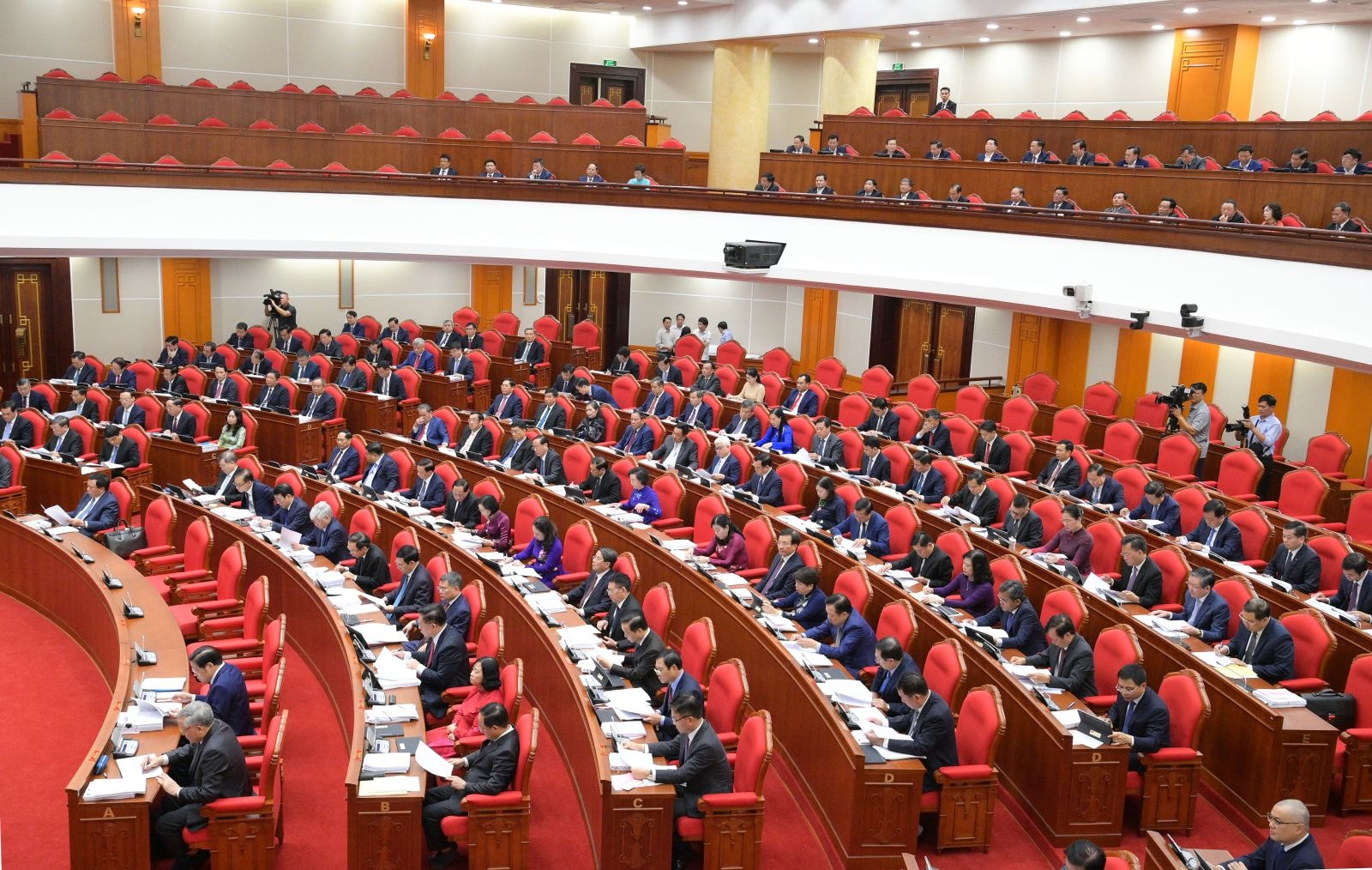
2. Putting public service at the center and the nation above all else as the fundamental basis of action:Building a culture of political integrity and service. Cultivating a team of officials with a nationalistic mindset and a spirit of service to the people, rather than simply "enjoying privileges in office." Strategic cadres must be trained to serve the Fatherland, the people, and the nation, not for the benefit of isolated groups, and certainly not for narrow, selfish personal gain. Those who can overcome narrow-mindedness and individualism will naturally gain prestige without even seeking it.
3. Fostering aspirations, ethics, and political culture:This is the "golden triangle" for shaping the character, competence, and integrity of cadres based on a "cadre culture": integrity, impartiality, dedication, and self-respect. The more self-respecting one is, the greater their influence. Moral decay inevitably leads to the death of morality and leaves no place to stand.
4. Implement a mechanism for selecting talented individuals, not factions:The reality is that factionalism and division of power are rampant among many people. The mechanisms for controlling power and screening officials must be genuine, but they are currently dominated by parochialism and privilege within the "structured" and "privileged" systems.
5. Prioritize the recruitment of young officials but avoid "youthful reorganization of the administration":Young people must demonstrate political acumen, commitment, and innovation; they shouldn't be driven solely by age or relied upon for superficial achievements, prioritizing form over substance, or even resorting to disguise or "false embellishment."

Among many important tasks, three main and urgent types of work stand out:
1. Identifying potential leaders is the first but most important step in personnel management.A breakthrough in reforming the process of evaluating officials is the most difficult, challenging, and important task. We need to focus on work performance and genuine trust from the people and subordinates, rather than just votes of confidence at various levels. Officials who lack the people's trust will have nothing!
Develop mechanisms for identifying, selecting, and protecting talent. Establish a mechanism for truly utilizing talent: Employ capable individuals, even those with no connections. Protect those who dare to think, dare to act, and dare to take responsibility, avoiding the isolation and suppression of talented individuals…
Identifying capable officials through practical experience, dedication, challenges, and the opinions of the people; identification through practice, not just through records: Competent individuals must be discovered through their actions, results, and the recognition of the people, not just through achievements on paper or empty reports.
And, discovered through trials and tribulations: True leadership is revealed in times of difficulty and crisis – this is the most important test. Those who hold important national affairs need to possess: humanity, righteousness, loyalty, trustworthiness, courage, and strategic thinking. Being wealthy without breaking the law is humanity; being noble without arrogance is righteousness; being entrusted with difficult tasks without wavering is loyalty; being employed in a high position without suspicion is trustworthiness; being fearless in the face of danger is courage; and handling affairs without hesitation is strategic thinking.
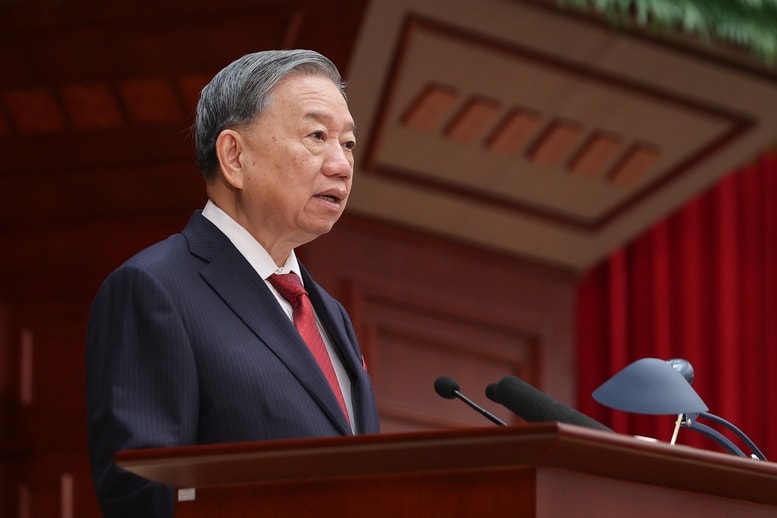
2. Selection based on merit, no favoritism, no cronyism, no compromise..If talent must be identified and prioritized, then selection and utilization cannot be based on term limits, localization, or factionalism. Only those with genuine talent can recognize, attract, and properly utilize other talented individuals.
Ensuring the principles of reform: Selection based on merit, not rigid structures. Do not choose people based on personal connections, factions, or compromises; instead, select worthy individuals with fairness and transparency. Do not choose average people to maintain stability, nor those who are sycophantic or arrogant to gain consensus; and certainly not opportunists who are easily manipulated or who accept bribes to maintain a false sense of stability. Do not select based on a system of factionalism or division; instead, maintain a structure that selects the right people with virtue and talent, those who are truly capable.
3. Empowering individuals to take on important tasks, trusting them, and accepting differences.Valuing talent is not just about appointing people to positions, but about empowering them, creating opportunities, and protecting their creative space. It means valuing those with vision, creative thinking, who think big, are courageous enough to act decisively, and are brave enough to take responsibility. It means respecting and protecting all differences, even unconventional ones, by dismantling entrenched behaviors within bureaucratic and formalistic frameworks.
Trust in assigning important and challenging tasks to test, filter, and utilize talent. Do not choose those who speak well but act poorly, those who are glib, those who betray their teachers and friends, especially those who say one thing and do another, who, as children, dared to steal a watermelon, and as adults, brazenly steal an elephant from the national treasury, or who are utterly audacious and sell the sky without a written agreement.
No local officials will be appointed to key positions at all levels and in all fields, moving towards de-localization in national administrative and strategic advisory bodies.
Beware of all schemes to "unlock" the personnel management process through dark and corrupt "alliances," using money and power to manipulate and fragment the ranks, and even undermine the nation's righteous path.
4. Appreciating others means accepting positive differences and not being afraid of those who are more skilled than yourself.A breakthrough in the training, utilization, and reward mechanism is needed. Talent is what makes the difference. Work performance should be the common denominator for evaluating cadres, thus accepting all personalities, backgrounds, strengths, and weaknesses. Here, those in positions of responsibility in personnel management need courage, a willingness to learn, and a humane approach, especially self-improvement to uphold discipline and integrity in the recruitment and utilization of cadres.
We must avoid and reject the situation of "going in heavily and returning heavily, going in lightly and returning lightly, going in empty-handed and returning empty-handed" in attracting, assigning, valuing, and promoting cadres. Reforming the institutional framework to use the right people, conducting regular screening, and providing appropriate compensation should be considered a culture of self-cleaning the workforce, a culture of selective recruitment, and a culture of valuing talent...

In this regard, three main tasks stand out and need to be addressed urgently:
1. Protect those who dare to act and take responsibility.Establish a mechanism for identifying and protecting talented individuals: Protect innovative cadres, avoid stereotypes, discrimination, and rigid adherence to individual creativity. Develop a talent policy as a "sacred law" of the Party and the State.
We should protect those who dare to think, dare to act, and dare to take responsibility, not those who commit wrongdoings. We need to protect officials who are dedicated, capable, idealistic, and responsible, even if they may not be perfect.
If officials make mistakes, they should correct them, but if leaders are timid, defensive, and afraid to act for fear of making mistakes or taking responsibility, it is far more dangerous.
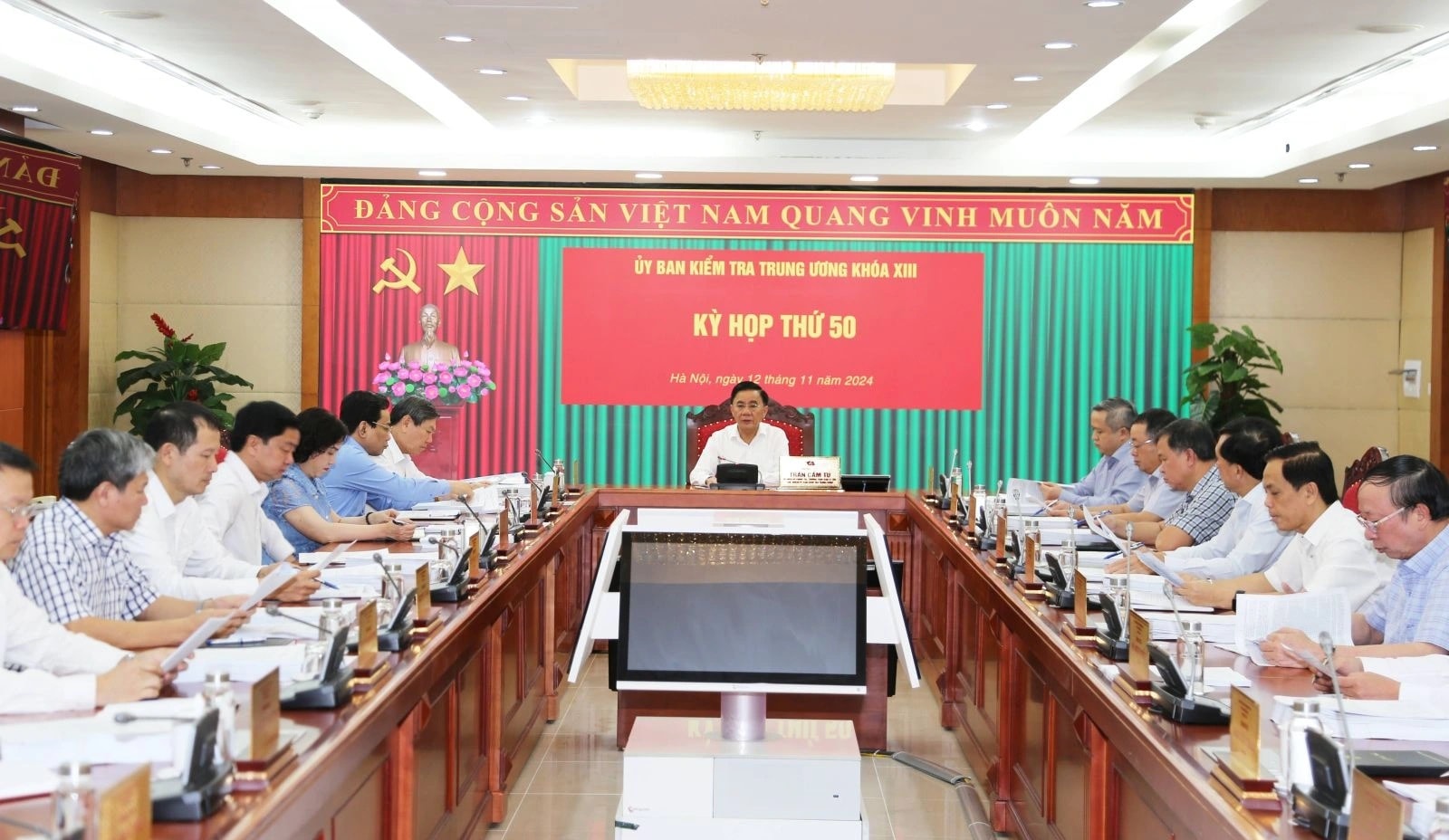
2. Public inspection and supervision, disciplinary action without exception, linked to people's oversight and ensuring continuity.This is a system of warning, alerting, prevention, and fair and transparent handling.
Not all social power stems from authority, but many calamities, even deadly ones, are born from unchecked or half-checked power. Therefore, the position, role, and authority of leadership at all levels in personnel management must be closely linked to political responsibility, legal responsibility, and moral obligations in an open and transparent manner.
The higher the leadership position, the more thorough and extensive the supervision and inspection, and the harsher the disciplinary measures compared to officials and Party members who do not hold positions in the political system. Supervision and inspection must be proactive, regular, transparent, and systematic; they should not wait for signs of wrongdoing before initiating them or follow up by "cleaning up" the consequences. This is a political law and a political principle.
3. Upgrade the multi-dimensional evaluation and monitoring system using data, results, and social feedback based on accountability..
Nothing measures officials and public servants more accurately and objectively than the trust of the people and their subordinates. Emphasis should be placed on the supervision of the people, the press, and Party organs within the political system – three independent but legally and ethically interconnected layers of oversight and inspection. No one is allowed to stand outside of supervision, inspection, and discipline. Accountability should be clearly defined for individuals and agencies with authority and responsibility in personnel management.

1. Leadership training must be comprehensive, not dogmatic or scholastic, and entirely focused on action.
Regarding objectives: Training in Vision - Intelligence - Character - Ethics - Action.
In terms of ideology: The goal is not to teach people to become officials, but to teach them to live decent lives, do what is right, act with integrity, avoid conflict and harm, live honestly, have a clear conscience, possess the courage to dedicate themselves, and dare to take responsibility before the people and the nation.
Regarding content: Restructure training programs, especially in professional skills, management capabilities, global systems thinking, and national policy planning skills. In particular, professional and management skills are crucial; without expertise, leadership is impossible. However, a lack of ethics inevitably leads to failure. This world has always belonged to those with integrity.
All of this aims to enhance intellectual capacity, political ethics, leadership skills, and practical action – the four fundamental pillars that build the people's trust in their leaders..
Regarding methodology: A combination of formal education, practical training, and learning from the people. A parallel approach between school and real-world experience, developing within the community. In other words, it's not just about "learning theory," but about connecting with and solving practical problems, experiencing difficult situations and challenges, especially resolving bottlenecks at crucial turning points or turning points in practical experience.
2. The rotation mechanism should be a strategic experience, not a formal roll call or a superficial embellishment:
Officials must be sent to places where breakthroughs are needed, places of real challenge. This should be linked to a results-based evaluation mechanism, not a system of "going to work for points" or "going just for show"... We must prevent and combat corruption such as "buying positions and power," "evading punishment," and "evading disciplinary action" through mechanisms of transparency and strict control of power in this area.
Three key factors should be considered when determining the outcome of a personnel rotation: the people, work results, and moral character.
Without competent cadres, there is no strong Party. Without a strong Party, there is no sustainable national development. After establishing a correct political development line, the decisive factor for success is people, depending on the cadre, first and foremost the leadership cadre who are competent and worthy. This is a crucial aspect in perfecting and enhancing the strength of the Party's leadership and governance methods, national prestige and strength, in order to create and develop an era of prosperity and strength.
Successfully building a team of leaders at all levels will naturally lead to the aspiration for a prosperous and strong nation, even without actively seeking it.



